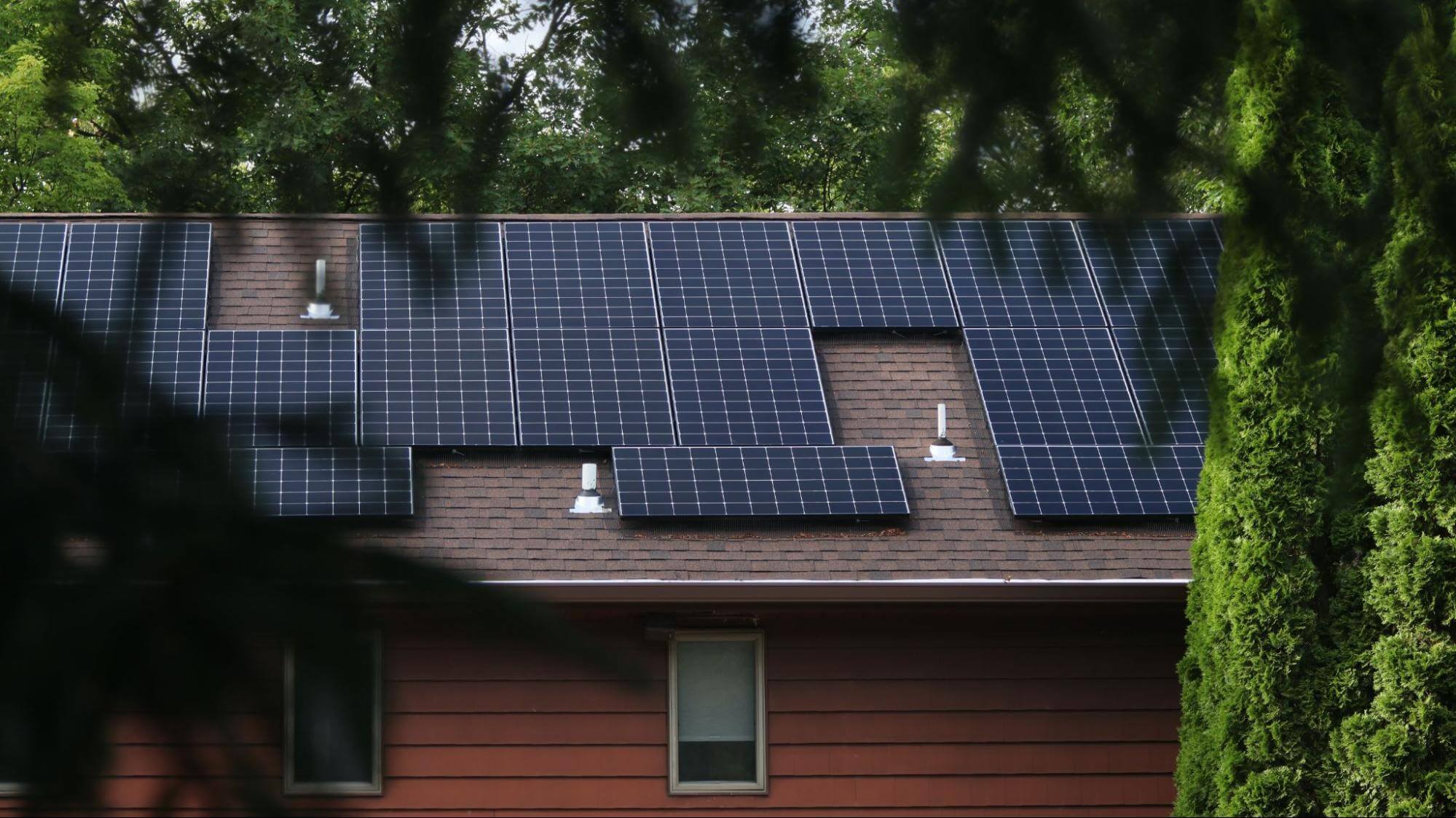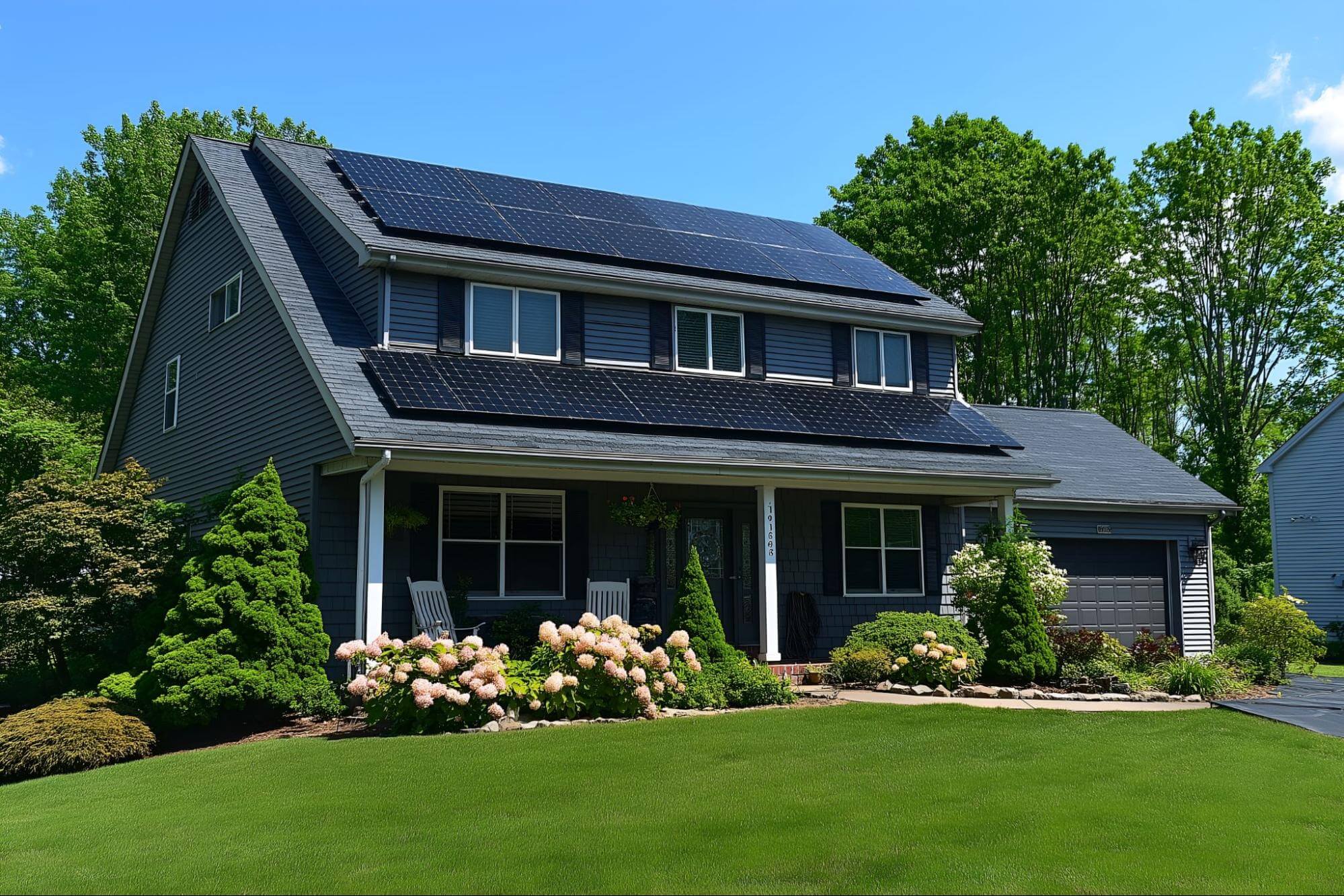Homeowners have access to multiple incentives in Pennsylvania, these programs are designed to support your transition to solar. The largest incentive offered to Pennsylvania residents is the federal government’s Solar Investment Tax Credit, followed by state and local-level incentives.
By leveraging these incentives, Pennsylvanians can reduce upfront costs, generate income from excess energy production and improve their overall return on investment. Let’s dive into how these incentives work and how they can benefit you.
The Benefits of a Home Solar for Pennsylvania Homeowners
- Save Money on Your Electric Bill
When you install solar panels on your home, you can make your own electricity from the sun. This means you’ll pay less on your electric bill each month. Some homeowners even see their bills go down to almost zero! - Earn Money by Selling Extra Power
If your solar panels make more energy than you use, you can sell that extra power back to the electric company. Pennsylvania offers net metering, which rewards solar owners for excess energy sent to the grid. This helps you earn even more savings each month. - Solar Will Pay For Itself
A home solar energy system can last for up to 25 years — or more — and provide consistent solar savings. As your solar system produces electricity for your home, your dependence on the utility company will lessen. Your utility bills will drastically shrink and you will be saving money. These savings will add up and exceed the initial cost of the system. Even when factoring in the costs of financing, your monthly solar payments are more often than not less than your utility bills.
The Federal Solar Investment Tax Credit (ITC)
The federal Solar Investment Tax Credit (ITC) is the most significant incentive program offered to homeowners around the country, including Pennsylvania. This tax credit allows households and businesses to claim a portion of their qualifying solar system costs as a federal tax credit. A tax credit allows homeowners to reduce the federal income tax owed to the Internal Revenue Service, when properly filed.
As of 2024, the ITC provides a 30% tax credit for solar systems constructed between 2022 and 2032. The ITC phaseout plan is designed to gradually diminish the available tax credit over time. The credit will fall to 26% in 2033 — and fall again to 22% in 2034.
To qualify for the ITC, the solar system must be installed in the United States and be installed and operational during the tax year. The credit applies to the costs of solar panels and equipment, installation labor, solar battery storage and sales taxes on qualified items.
There is no maximum financial amount that may be claimed and the credit can be carried forward if the tax due in the installation year is inadequate to cover the entire amount. To claim the credit, you must own the solar system outright and file in the same year as installation.
This sizable credit greatly decreases the initial cost of solar installation, making it more affordable for a wider variety of households and businesses. However, prospective purchasers should always check with a tax specialist and obtain precise figures for their unique circumstances before making financial decisions based on anticipated tax savings.
State and Local Solar Incentives for Pennsylvania Homeowners
The AEPS includes net metering as a key component, rewarding solar homeowners for sending excess electricity to the utility grid. Utilities can meet these requirements by purchasing Renewable Energy Credits (RECs) from homeowners. The AEPS aims to promote clean energy development across the state, which can benefit homeowners with residential solar systems.
Solar Renewable Energy Certificate (SRECs) Program in Pennsylvania
When you install a solar energy system in Pennsylvania, you not only reduce your energy bills but also have the opportunity to earn additional income through Solar Renewable Energy Certificates (SRECs) — also called Solar Alternative Energy Credits (SAECs). SRECs represent the environmental benefits of generating one megawatt-hour (MWh) — or 1,000 kilowatt-hours — of electricity from solar power.
Utilities in Pennsylvania are required to purchase SRECs to meet the state’s Alternative Energy Portfolio Standard (AEPS). As a solar homeowner, you can sell these certificates on the SREC market for extra financial benefits.
Each time your solar system generates one MWh of electricity, you earn an SREC, which you can then sell to utilities or energy providers. This offers a great way to maximize the return on your solar investment by earning money for the clean energy your system produces.
For an 8 kW solar system that produces around 8,000 kWh per year, the annual revenue from SRECs would be around $344 (8 SRECs x $43). Over a 25-year period, this might equal to $8,600, assuming SREC prices remain consistent at $43. However, SREC pricing might fluctuate in response to market conditions and policy changes. The SREC program was established in 2004 as part of the AEPS.
Important Note:
While Enact does not assist homeowners in Pennsylvania directly with SRECs, we can work with trusted local partners who can help you navigate the process and set up your SREC account to fully benefit from this program.
Net Metering in Pennsylvania
The program is regulated by Pennsylvania’s Public Utility Commission (PUC) and it requires all investor-owned utility companies to offer net metering. Residential solar systems can have a maximum capacity of 50 kilowatts (kW), while non-residential systems can be up to 3 megawatts (MW) and microgrid systems may reach up to 5 MW. Solar homeowners are credited for their excess energy at the full retail price each month. At the end of the year, any remaining energy credits are paid out at a lower rate, known as the “price-to-compare.”
Net metering is available from all investor-owned utilities and some electric generation suppliers (EGSs) in Pennsylvania and customers with multiple properties can combine meters on locations within two miles of each other, making administration easier. Solar leases and power purchase agreements (PPAs) are also eligible for net metering benefits.
Each month, your utility statement will show how much energy you consumed and how much your solar system produced. If your system generates more energy than you use, the extra credits roll over to the next month. At the end of the year, any unused credits are paid out at the lower “price-to-compare” rate. However, savings depend on factors like your energy usage, system size and the specific utility company.
Keep in mind, rural cooperatives, municipal utilities and alternative energy providers typically do not offer net metering.
What’s the Solar Return on Investment in Pennsylvania

The Return on Investment (ROI) is a way to measure how good an investment is. In this case, the ROI is about 90%, which is much better than many other ways to invest your money. Plus, you’ll enjoy an average return of 3.6% each year, making solar a great long-term investment.
For those interested in the math: ROI is calculated using the formula: (Net Profit / Cost of Investment) x 100. So, in this case:
(($54,034.75 – $28,400) / $28,400) x 100, which gives an ROI of 90.26%. This works out to an average yearly return of 3.61%.
What Happens If Things Change?
- Electricity Rate Increases:
If electricity rates go up by 3% each year instead of 2.2%, the savings from net metering over 25 years would increase to $41,245 (up from $35,532). This would raise the total benefits to $59,747.75, resulting in an ROI of 110.38%. - SREC Price Fluctuations:
If the price of SRECs falls to $25, the income from SRECs over 25 years would decrease to $5,000 (down from $6,800). This change would bring total benefits down to $52,234.75 and the ROI would be 83.93%. - System Performance Degradation:
If the solar system loses efficiency at a rate of 0.5% each year, the savings from net metering would drop to $33,755 (down from $35,532) and the income from SRECs would be $6,460 (down from $6,800). Overall, this would lead to total benefits of $51,917.75 and an ROI of 82.81%.
How Enact Empowers Pennsylvania Homeowners

Pennsylvania homeowners can take advantage of the robust combination of federal and state solar incentives. These incentives make it an excellent time to make the switch to solar energy. There are numerous financial benefits to help reduce installation costs and increase long-term savings.
If you’re considering solar in the Keystone State, Enact Solar is here to guide you every step of the way. Now is the perfect time to take advantage of these incentives along with the decreasing costs of solar equipment. Enact’s team of solar experts offer customized solar proposals designed with our award-winning software, tailored to your home’s energy needs.
Schedule a free consultation today and an Enact home energy advisor will create a custom solar proposal for you, using your latest utility bill and accurate satellite imagery. Our team will help you find the optimal solar panel system, manage the entire installation process and provide ongoing monitoring through the Enact Home app.
Get started today with the right home solar system for your home and join the growing number of Pennsylvanians benefiting from clean, renewable energy.


